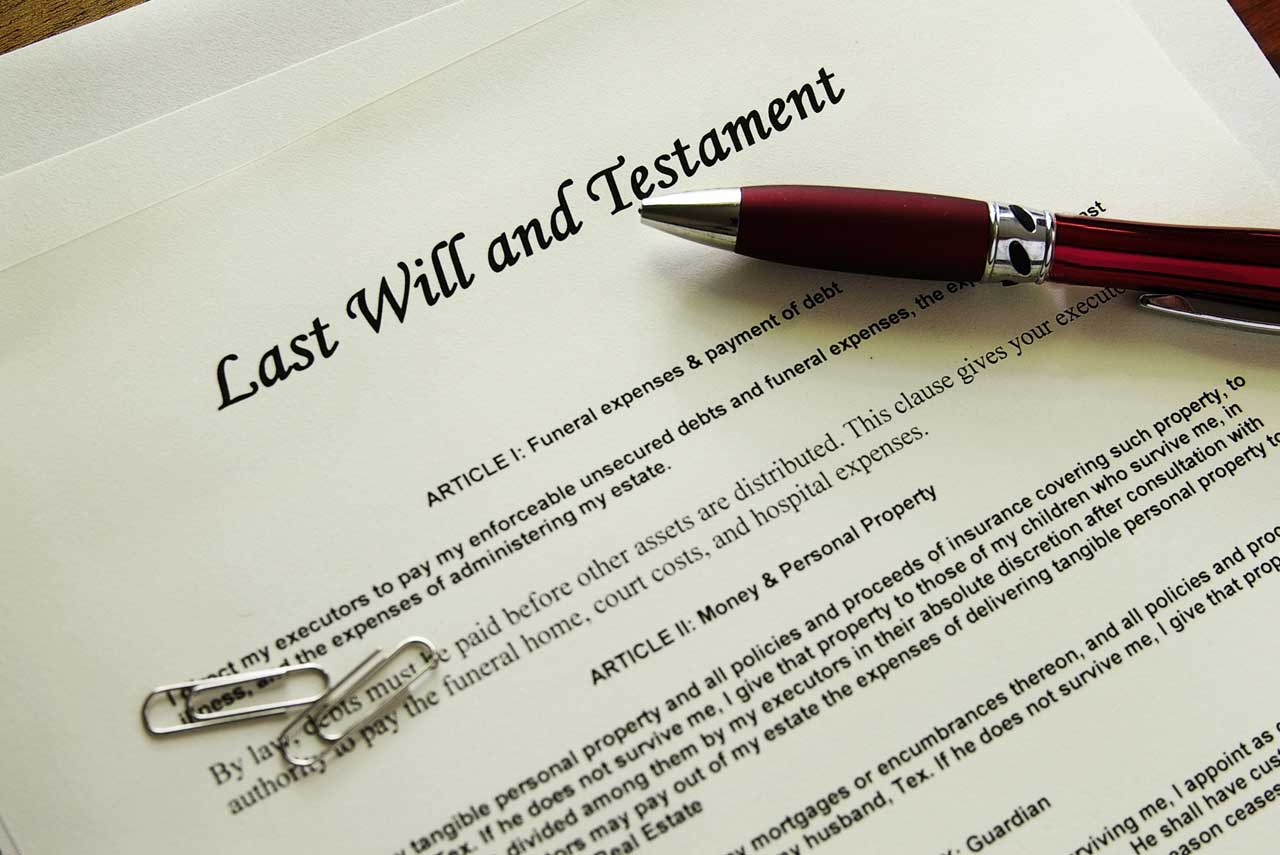Do I need a Will?
The answer to your question, Do I need a Will, is yes! Anyone over the age of 18 who doesn't want to leave their loved ones a mess to handle while they are grieving needs a Will.
A Will is a legal document that lays out what happens to your assets and any minor children after you have passed away. Who will care for them? What happens to your money? Your house? We know it’s not a subject that people want to discuss. The thought of not being around is scary and depressing, but it’s important to have your wishes carried out. You don’t want to leave it up to your state to decide.
Work with an Attorney to Draft Your Will
It is very important to work with an attorney to draft your Will. These days, there are many online resources out there. It can be tempting to fill out an online form. It can be less emotional, and you may think you’re saving money. You may even have a good idea of how you want to distribute your assets. Nonetheless, there are many state laws and regulations involved, and you don’t want to take the chance that your documents won’t hold up in court. That alone makes it wise to consult with an attorney experienced in drafting Wills and estate planning. Licensed attorneys are familiar with state probate codes and different estate planning laws, so make sure to work with an attorney licensed in your state.
What can happen if you don’t have a Will?
If you don’t have a Will, your state’s laws will determine what happens to your assets without considering your desires. In Virginia, for example, your entire estate would go to your current spouse after your death. But suppose you have kids with someone other than your spouse. Then, your spouse would get one-third of your estate, and your children would divide up the rest.
Other factors come into play if the children are minors. If both parents pass with minor children left behind, the courts will look to your Will to determine if you expressly designated someone you want to be their legal guardian. Without a Will expressing this most important of your desires, the courts may appoint a guardian you would not have chosen to care for your children. These situations can cause messy conflicts between your surviving family members. Family or friends could end up fighting for custody, or the children could become a ward of the state. Only you can disclose what you want for your loved ones — and the only way to do that is by having a legal Will.
What goes into a Will?
The words “Last Will and Testament” may sound intimidating, but it is a vital form of legal protection. And it has several key components:
Naming an Executor of Your Will:
An executor acts as your personal representative. In this capacity, they manage your estate after your passing. This person makes sure the right people receive your assets.
Distributions of Assets:
Your Will should state what assets you’re distributing and who will be receiving them. This includes both money and property. Distribution of assets is one of the main functions of a Will.
Listing Guardianship of Minors:
If you have minor children, your Will should name a guardian and explain how they should be cared for. It documents any money left to the children and how it is to be used.
Set-up of a Trust in Your Will:
A trust is an optional component of a Will. For example, if you have kids under 18, you can set up a Minors’ Trust. This trust will hold assets for your kids until they are old enough to responsibly use their inheritance. Trusts can also be set up for anyone at any age.
In short, a Will describes your desires upon your death. These are just the key items that can be included in a Will. You should discuss specifics with an attorney.
Additional Legal Documents
There are other documents that address how you want people to care for you while you are still alive. Here are a few terms you may encounter as you research Wills:
Power of Attorney
This allows you to name someone who can make decisions on your behalf. This person can make decisions on legal,, or financial matters when you’re not able to. Each state has its own rules about preparing legal documents. Your attorney can work with you to create a Power of Attorney.
Living Wills and Advanced Medical Directives
These spell out how you want to be taken care of if you are not able to make decisions. It is not the same as a Will and does not take the place of a Will. It designates a person or persons who are legally allowed to decide your care. Treatments can be listed that you would and would not like to undergo to keep you alive. For example, you may be comfortable with antibiotics, but opposed to tube feeding. You might not want to have extraordinary measures taken like resuscitation or a ventilator. These are all things that should be discussed with your attorney and put in a legal document.
Nobody wants to think about what happens after they're gone, but a Will can prevent family conflicts and protect your children and assets. The bottom line is simple. You should have a Will so that your loved ones can grieve your passing without having to sort out your affairs. you find yourself needing an attorney for Wills, Trusts, and Estates, contact our firm. (757) 389-7383

